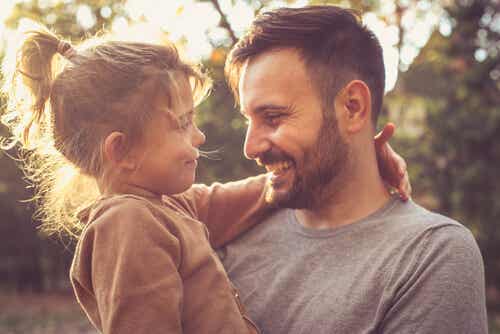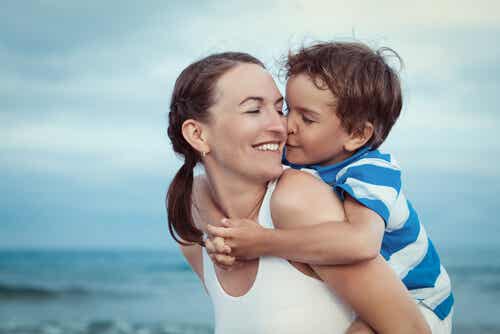The Best Early Childhood Education Books for Parents

Human development is a continuous process that never stops. However, the early childhood stages are particularly important in this evolution. In this regard, parents have an enormous and valuable window of opportunity to promote their children’s growth. Books on the subject are great resources.
The language is usually simple and one can easily adapt their content, as it’s designed to help at each stage of development. Today’s article is about five books on early childhood education that are particularly worthwhile.
Books on early childhood education for parents
These books are great for approaching the world of your little ones. They’ll help you understand them better so you can provide them with the tools they need for a balanced development.
Anti-Bias Education in the Early Childhood Classroom: Hand in Hand, Step by Step edited by Katie Kissinger
This title is self-defined as a guide for intelligent education. Therefore, it’s an interesting book to get into the mind of the little one and understand different models of behavior.
It isn’t only a book that’ll help you with the education of the little ones but also contains methods and strategies with which to enhance their development. The idea is for them to develop their full potential by acquiring social skills to be at ease in different environments.

Effective Practices in Early Childhood Education: Building a Foundation, by Dr. Sue Bredekamp
This book directs your attention to important topics people often forget, such as active listening, for example. This is because adults don’t always listen to children. Thus, it’s essential for a comprehensive and personalized education.
Sue Bredekamp suggests a transformation of communication, eliminating the existing divisions between school and family, so that father and mother, as well as other actors in the child’s intimate environment, become priority collaborators and true educators.
Happy Children by Alicia Bandera, one of the books on early childhood education
This author writes from her own experience. Her goal in sharing it is so that other parents can benefit from it.
The book is simple to understand and can also be useful for those in the educational system, both formal and informal. It explains the natural conquest of autonomy in a didactic manner, as well as the importance of reaching every milestone of every child’s development. It’s sort of about writing their own path.
The Heart of Parenting: Raising an Emotionally Intelligent Child by John Gottman
This author is one of the pioneer child psychologists who focused on child education. His book is a master class on how to educate children based on two essential elements: affection and intelligence.
Gottman offers practical and useful guidelines on child pedagogy, sprinkled with the necessary directives so that the educator, be it a parent or a professional, has the keys that’ll lead them to identify any deficiencies, needs, desires, and feelings from childhood to adolescence.

How to Talk so Kids will Listen, and Listen so Kids will Talk by Adele Faber and Elaine Mazlish
This book is a best seller in the early childhood education sector. Its success lies both in the subject matter and in the way the author structured it. This is because it contains effective tools for establishing and maintaining fluid communication channels, from the standpoint of both parents and education professionals.
The authors focus on writing a guide on how to solve the most common problems for parents, tutors, and educators.
In addition, they show how to deal with negative feelings in children. Also, how to express anger without following the dictates of anger or resentment, how to get them to collaborate in different tasks and objectives, and how to set boundaries and maintain them. In other words, how to be parents or educators without impairing communication.
In conclusion, these are some of the best books on child education at the moment. You can find tools and methods to face day-to-day problems within their pages. Do you know of any other books we should add to the list? Please share them in the comments section!
This text is provided for informational purposes only and does not replace consultation with a professional. If in doubt, consult your specialist.








